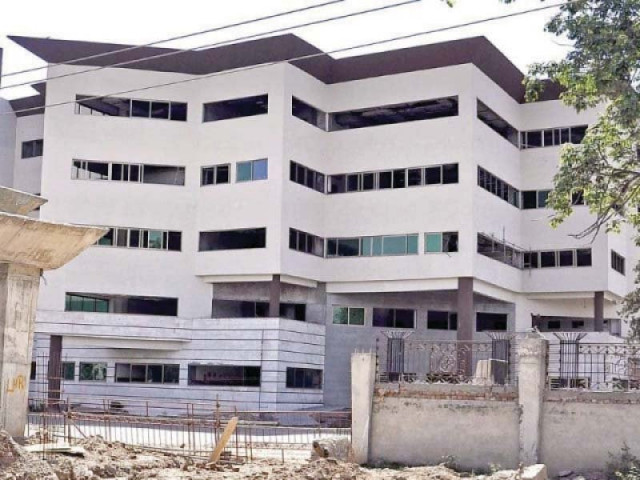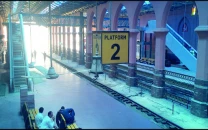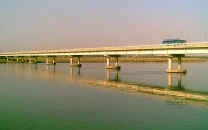All set for RIUT’s inauguration
PM Shehbaz Sharif will formally open dedicated kidney hospital on April 7

The Rawalpindi Institute of Urology and Kidney Transplant (RIUT), a mega healthcare project that had been pending for the past 10 years, is at long last ready for inauguration.
Sources said that Prime Minister Mian Shahbaz Sharif will inaugurate the dedicated kidney centre on April 7.
According to sources, the emergency, outpatient department (OPD), lithotripsy, dialysis centre and laboratory have already been made fully functional at the RIUT while the installation of kidney transplant machines is in progress.
The sources said that human resources for the hospital will also be provided soon. Shehbaz Sharif laid the foundation of the project as the chief minister of Punjab in 2012. However, the project was hit by many snags in the preceding years for one reason or the other with the change of hands at the provincial level.
Work on the 250-bed RIUT has been completed but the project could not be made functional due to the non-procurement of the electro-medical equipment, the non-installation of machinery and the non-hiring of human resources for the hospital.
The hospital building was also used to tend to the coronavirus patients in the Rawalpindi district for two years, forcing kidney patients to seek treatment in private hospitals at high costs for ailments such as dialysis because other government hospitals lack facilities to tend to kidney patients.
Formal kidney transplants will be initiated in the hospital after it was made functional. The lithotripsy machine, used to remove stones from the kidney through radiation, is among the 30 machines that have been made functional in the dialysis unit.
Sources said that RIUT can achieve success only if it will run on the model of Rawalpindi Institute of Cardiology. Financial independence and a professional environment free from any kind of interference will be essential, they said.
At present, the urology department of the Benazir Bhutto General Hospital is conducting kidney transplants on a limited scale. A few operations have been carried out by a 35-member urology and kidney transplant expert team at the hospital.
On the other hand, kidney patients are facing difficulties due to the lack of capacity as there is one urology ward at the Benazir Bhutto General Hospital.
A review meeting was held under the chair of Rawalpindi Commissioner Liaquat Ali Chath regarding the operationalization of the RIUT, the arrangements and early completion of the remaining work.
The meeting participants were told that the pending work on the hospital will be completed soon.
RIUT Medical Superintendent Dr Khalid Abbas Janjua said that the emergency, OPD and dialysis departments have been made functional at the hospital.
He said that the lithotripsy machines have also been installed. A laboratory has also been made functional in the hospital while 80 per cent of the machinery required for kidney transplants has reached the hospital and the installation of which is in progress, he said.
He said that human resources will also be provided to the hospital soon. He said that they will try their best to make the hospital fully functional by the end of April so that all treatment facilities for kidney patients can be available under one roof.
The RIUT has around 30 dialysis machines and after the completion of the project, the burden on city hospitals for treating kidney patients would be decreased.
With 30 state-of-the-art dialysis machines, 30 people will be able to have dialysis at the same time.
Kidney stones will be treated with a laser using lithotripsy machines at RIUT which will be the first government hospital for the treatment of kidney diseases in the Rawalpindi division.
Published in The Express Tribune, March 31st, 2023.


















COMMENTS
Comments are moderated and generally will be posted if they are on-topic and not abusive.
For more information, please see our Comments FAQ